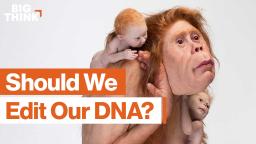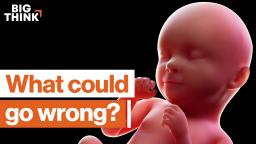Health
All Stories
Can the main psychoactive ingredient of magic mushrooms help treat the world’s sixth most debilitating illness?
“The question is which are okay, which are not okay.”
▸
14 min
—
with
Want to live 100+ years? You may need unusually good DNA repair.
Noise causes stress. For our ancestors, it meant danger: thunder, animal roars, war cries, triggering a ‘fight or run’ reaction.
New machine-learning algorithms from Columbia University detect cognitive impairment in older drivers.
In the near-term, gene editing is not likely to be useful. Even in the long-term, it may not be very practical.
For every good idea in evolution, there is an unintended consequence. Disease is often one of them.
Healthy people need healthy microbiomes from an early age.
A lab identifies which genes are linked to abnormal repetitive behaviors found in addiction and schizophrenia.
The answer seems to be a series of evolutionary trade-offs that help protect organs in women, according to a recent study.
Two different studies provide further evidence of the efficacy of psychedelics in treating depression.
The potential of CRISPR technology is incredible, but the threats are too serious to ignore.
▸
14 min
—
with
Are “humanized” pigs the future of medical research?
New research from the University of Granada found that stress could help determine sex.
The conventional wisdom may be wrong. Consulting Google for information about medical symptoms might not be as counterproductive as commonly thought, new research suggests.
Awareness of one’s own heartbeat has some positive effects.
The new treatment targets the underlying genetic cause of the disease.
Reconnecting muscle pairs allows for better sensory feedback from the limb.
Growing marijuana in large, climate controlled warehouses is good for production but has a massive carbon footprint.
Ultrasound might be able to damage the novel coronavirus in the same way an opera singer’s voice can shatter a wine glass.
Cotton mask fibers prove 33 percent more effective at blocking viruses in trials.
New study suggests the placebo effect can be as powerful as microdosing LSD.
What makes some people more likely to shiver than others?
Eating veggies is good for you. Now we can stop debating how much we should eat.
The vaccine will shorten the “shedding” time.
Light-emitting tattoos could indicate dehydration in athletes or health conditions in hospital patients.
Learn to whip up some of the most popular cocktails — from classic mojitos to white chocolate and coconut martinis.
Cow cuddling is getting ever more popular, but what’s the science behind using animals for relaxation?





























